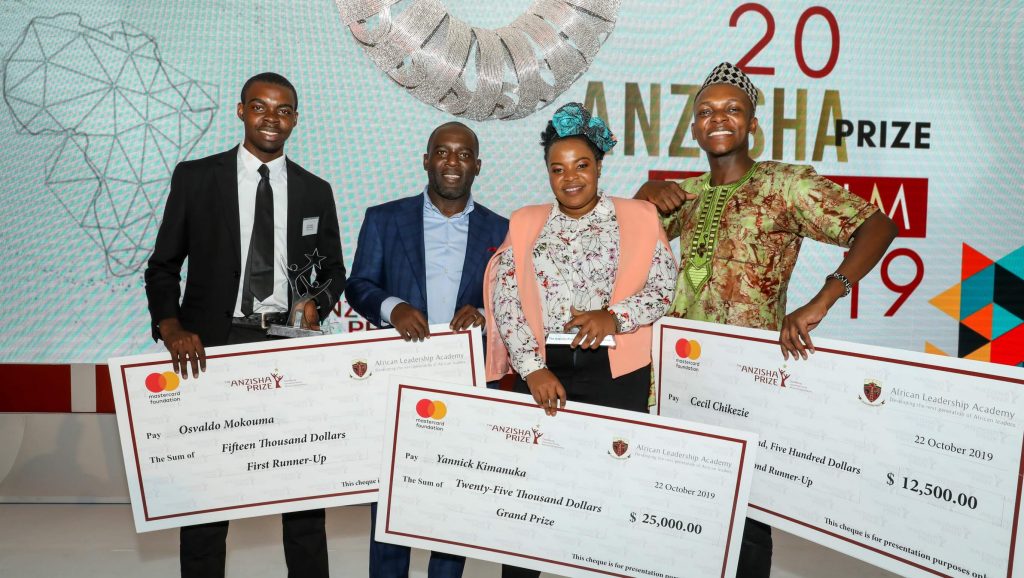We all have them. Those apps we open without thinking. Not because we need anything in particular, but because they feel… safe, in some…
Funding: a catalyst to promote youth entrepreneurship in Africa

Many youths across Africa are stepping out of the box to provide laudable solutions to economic problems. With strong intention and drive, these problem-solvers are likewise putting action behind their unique business ideas.
However, it costs money to fund any business which, in reality, is a major challenge for many African youths. With a high dependency on family and friends, many young entrepreneurs struggle to raise a considerable amount of investment to fund their business ideas.
Overall, things are not looking so attractive for young entrepreneurs across Africa with evidence that SMEs in Africa experience a severe shortfall in financing – with a funding gap estimated at $140 billion – says the recently published LSEG Africa Advisory Group report on the challenges and opportunities of SME financing in Africa.
The report also says that “[This] lack of funding has resulted in millions of SMEs being forced to go out of business within a few months of beginning operations” with notable examples from Kenya and Nigeria.
Nevertheless, it is not all doom, as Africa continues to encourage entrepreneurship, opportunities beckon those with well-carved out, competitive and outstanding ideas. For this set of individuals, getting the right source of business funding is non-negotiable.
A few organizations, both within and outside Africa, have taken interest in supporting young African entrepreneurs by providing patent finance through grants, prizes, and soft loans for start-ups.
Anzisha Prize Fellows share their testimony on how the Prize has lent a listening ear to young Entrepreneurs in an entrepreneurial world without ears
Winner of the 2019 Anzisha Prize, the founder of the Kim’s School Complex based in the Democratic Republic of Congo (DRC), Yannick Kimanuka shared her testimony on how winning the Anzisha Prize revived her almost-collapsing company.
“Establishing a company in the DRC requires basic infrastructures that must meet certain outlined requirements. Sadly, my company could not meet these requirements and this caused a lot of hassles in setting up the company,” said Kimanuka.
Having dealt with this infrastructural challenge for many years, Kimanuka heard about the Anzisha Prize through her Turkey-based brother in 2019 and in her words “that marked a good beginning for my company.”
Kimanuka won the grand prize of $100 000 from Anzisha in 2019 which according to her brought life into her company. Not only was she able to acquire the basic infrastructure required for the company, but the fund also helped her to expand beyond what she initially had in mind.
“Anzisha Prize has greatly helped me to expand my company in terms of coaching and infrastructure. Notably, we were able to build more classrooms and meet certain administrative needs,” she said. “Aside from infrastructural challenges which were the major one, recruitment of employees was the basis of several other problems which we struggled with. These problems were all solved after I got the Anzisha Prize,” she added.
Praising the program and its organizers, Kimanuka positioned Anzisha as an excellent initiative that has helped a lot of young people in realizing their entrepreneurial dreams. She added that beyond the “cash prize,” the program offers invaluable mentorship that is beneficial to every young start-up and encouraged young entrepreneurs within the accepted age range to take advantage of this.
“Funding is an enterprise’ lifeline”
Analogizing funding as an enterprise’s lifeline, Anzisha Prize Fellow and the founder of Kenyan-based Eco Makaa, Cecil Chikezie, also shared his life-changing experience with Anzisha.
Following the ban on charcoal in Kenya, Chikezie conceived an idea on how to turn carbonized agricultural waste into a sustainable and affordable energy source that could efficiently replace charcoal.
With this perfect idea on track, a notable stumbling block was how to get his plans into motion and save the citizens from a looming charcoal price hike which was already affecting rural families, including Cecil’s.
Following the establishment of Eco Makaa in 2018, Cecil, like many young start-up owners, struggled with setting up and expanding his company, largely due to lack of funding.
“We faced a lot of challenges after the ideation stage, particularly in terms of cash flow. The market was there but, we were not about to serve them. Cash was a big challenge to acquiring infrastructure, expanding operations, and meeting market demand,” he explained.
Chikezie got to know about Anzisha through his high school mate, a 2018 cohort of the Prize. With his friend’s testimonies, he was convinced that the Prize was what he needed to take-off.
He was awarded $12 500 in cash as the first runner-up in 2019 and just as he had imagined, it marked an unforgettable landmark in his entrepreneurial journey.
“Through the Prize, we have increased our capacity to serve more customers including hotels and restaurants. We were also able to conduct further research which led to the development of a faster and more efficient briquette-making machine to ease our operations,” said Chikezie.
Chikezie also emphasized the importance of funding for very young entrepreneurs like him.
“Some ideas are only able to come to fruition through external support which most young African entrepreneurs do not have. If not for the funding I got from Anzisha, my company, like many others, would have crumbled as a result of strains and stress. Funding has enabled us to ride out of storms.” He concluded.
These testimonies are just a few from the ocean of benefits young entrepreneurs have gained from the Anzisha Prize. More information about the prize can be found here.
Feature image: Supplied
The Anzisha Prize seeks to fundamentally and significantly increase the number of job generative entrepreneurs in Africa, and is a partnership between African Leadership Academy and Mastercard Foundation. Through Ventureburn, they hope to share inspirational and relatable stories of very young (15 to 22 year old) African entrepreneurs and the people that support them. [learn more]

